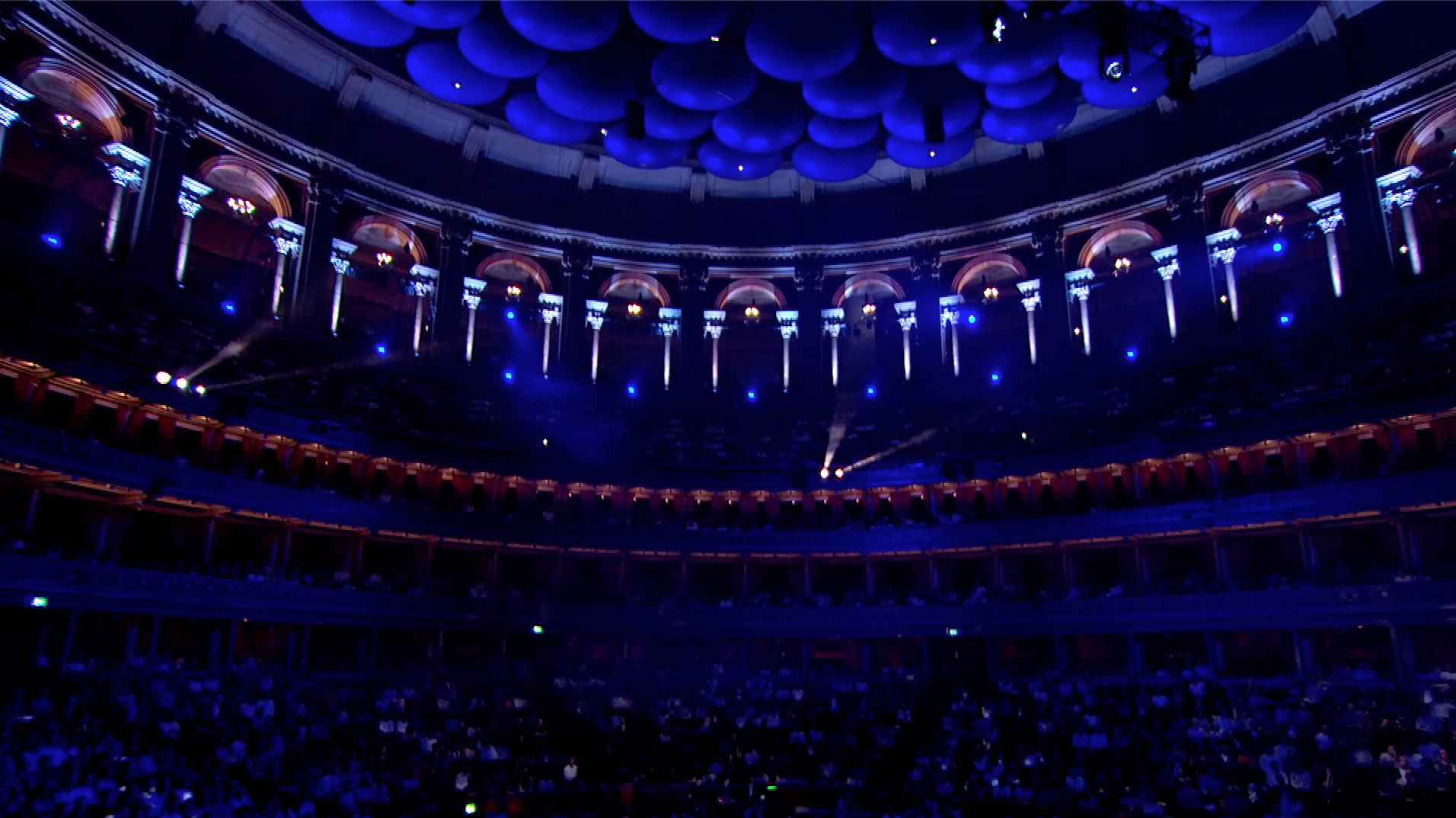KOKOROKO
Monday 7 September, eight

Tracks to include:
Abusey Junction
Ti-de
Uman
Carry Me 主播大秀
Baba Ayoola
Age of Ascent
KOKOROKO

This concert is broadcast live by 主播大秀 Radio 3 and live-streamed on 主播大秀 iPlayer. You can listen to any of the 2020 Proms concerts on 主播大秀 Sounds or watch on 主播大秀 iPlayer until Monday 12 October.
Welcome to tonight’s Prom
Many of the seeds for tonight’s concert were sown in the practice rooms of London’s Trinity Laban Conservatoire. Two of KOKOROKO’s eight members, Sheila Maurice-Grey and Cassie Kinoshi, plus former member Oscar Jerome, are Trinity alumni – as was one of the band’s biggest influences, the Nigerian musician and Afrobeat pioneer Fela Kuti.
Drawing upon a wide range of styles and cultures – from indigenous and popular West African music to inner-city Grime – tonight KOKOROKO brings its cosmopolitan sound to the Royal Albert Hall in a set that puts rhythm front and centre, with tracks from the band’s 2019 self-titled album, as well as its latest release, ‘Carry Me 主播大秀’. For their Proms debut, these young luminaries of the booming London jazz scene invite you to put on your dancing shoes and move!

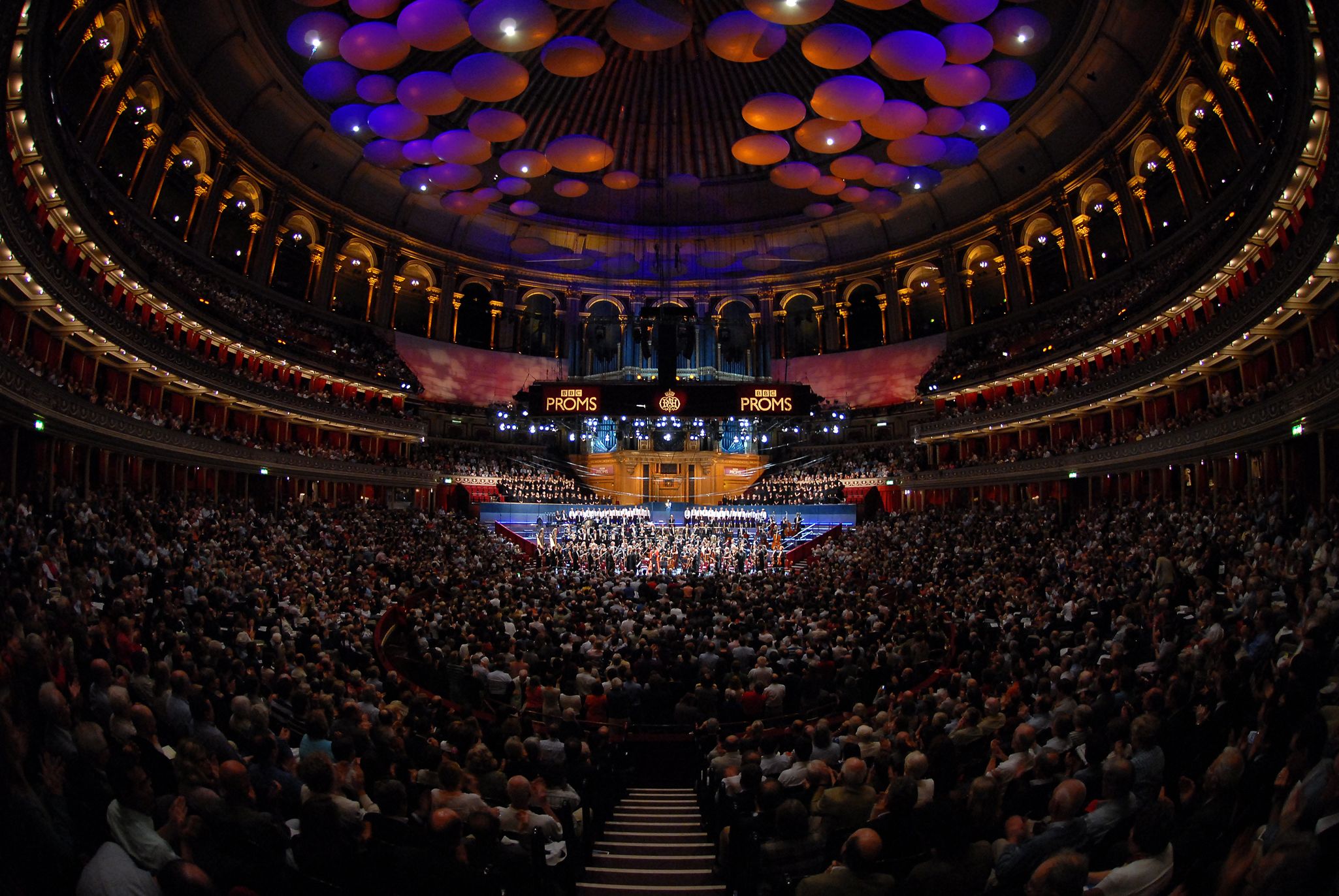
Welcome to tonight’s Prom
Many of the seeds for tonight’s concert were sown in the practice rooms of London’s Trinity Laban Conservatoire. Two of KOKOROKO’s eight members, Sheila Maurice-Grey and Cassie Kinoshi, plus former member Oscar Jerome, are Trinity alumni – as was one of the band’s biggest influences, the Nigerian musician and Afrobeat pioneer Fela Kuti.
Drawing upon a wide range of styles and cultures – from indigenous and popular West African music to inner-city Grime – tonight KOKOROKO brings its cosmopolitan sound to the Royal Albert Hall in a set that puts rhythm front and centre, with tracks from the band’s 2019 self-titled album, as well as its latest release, ‘Carry Me 主播大秀’. For their Proms debut, these young luminaries of the booming London jazz scene invite you to put on your dancing shoes and move!


Music to Move to

‘This is not idle music!’ are the words of KOKOROKO’s bandleader, Sheila Maurice-Grey, in describing the collective’s sound and ethos. Rooted in Highlife, Afrobeat and lilting Palm Wine sounds, it’s high-spirited music that calls for your attentiveness and participation; but mostly, to paraphrase the great King Sunny Adé, the band wants you to dance, dance, dance!
Throughout the 20th century, West African music has had a home in London. In the 1940s and 1950s groups such as the West African Rhythm Brothers, and later Fela Kuti’s band Koola Lobitos (formed in 1960 with musicians he met at the Trinity College of Music – as it was then known), fashioned modern expressions of West African music through the prism of their experience as migrants in a post-war world hurtling towards the (official) end of colonisation. This music was a means of making space for developing politics and kinship in a city that wasn’t always kind to its black musicians and migrants. Today, as Britain continues to grapple with colonial legacies, questions of citizenship, the fallout from austerity and a resurgence in nationalism, KOKOROKO – a band made up of mostly second-generation immigrants with roots across Africa and the Caribbean – is asking itself: what should these great West African musics sound like for this generation, through the filter of their own experiences and musical sensibilities?
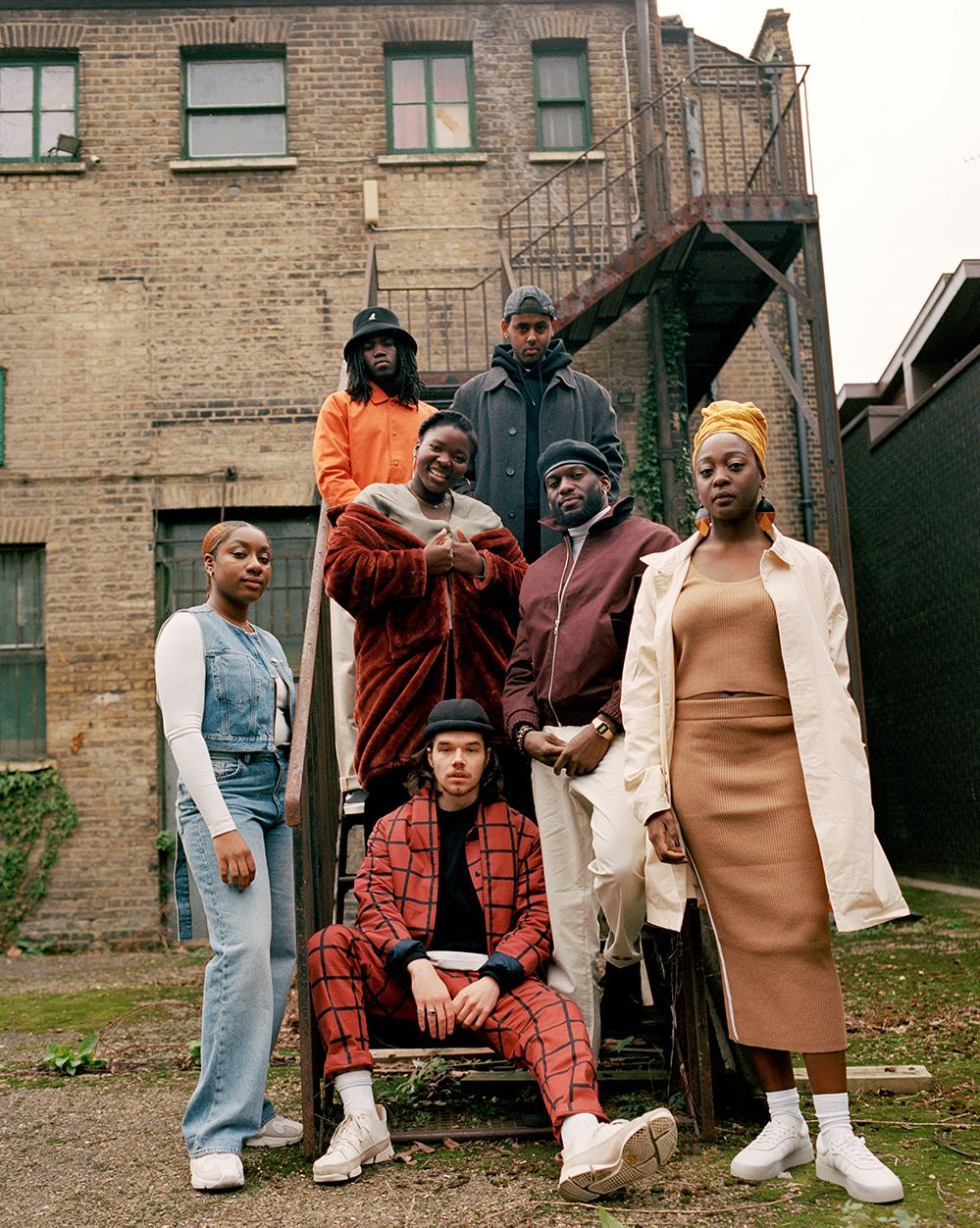
KOKOROKO: reshaping the landscape of British jazz (Nina Manandhar)
KOKOROKO: reshaping the landscape of British jazz (Nina Manandhar)
KOKOROKO (meaning ‘be strong’ in Urhobo) was formed in 2014 in the spirit of a creative intervention. During a trip to Kenya, Maurice-Grey and percussionist Onome Edgeworth were musing about the lacklustre state of the UK’s Afrobeat scene. ‘I was whining about one show I’d seen in particular,’ Edgeworth shared in an interview with the Hackney-based radio station NTS. ‘There was one Nigerian player on stage and no black people in the crowd whatsoever … It wounded me to think that there are so many West Africans in London … and you go to a space to hear black music being played and there were none of us there.’ There was a sense that Highlife and Afrobeat sounds in London – with some exceptions – had been colonised by the legacy of homogeneous ‘world music’ fantasies, limiting the possibilities of an ever-evolving body of music.
‘So Sheila called my bluff,’ continued Edgeworth. ‘She said she was going to start a band and that I should either come and play or shut up about it!’ The resulting group features leading lights from a new generation of players reshaping the landscape of British jazz. The all-female horn section consists of Cassie Kinoshi (member of jazz group Nérija and bandleader of the Mercury-Prize nominated SEED Ensemble), Maurice-Grey (also a member of Nérija, as well as a soloist performing under the moniker Ms Maurice) and vocalist/trombonist Richie Seivwright. The rhythm section features Yohan Kebede (also a member of the West African-inspired Balimaya Project) on keys, Edgeworth on percussion and Ayo Salawu on drums. Tobi Adenaike plays the band’s signature guitar riffs and Duane ‘Hurcs’ Atherley holds it down on bass.
A Global–Local Sound
KOKOROKO’s members have been on a mission. Like many of their peers in the flourishing London jazz scene, they weren’t opting to play only in jazz clubs, but in pubs, record shops, warehouses, arts venues and clubs, putting on their own shows and collaborating with promoters and DJs to create a different, more accessible feel to their nights. In the process, the band’s audience diversified. Following in the footsteps of those seminal Highlife groups playing in Soho in the 1940s and 1950s, KOKOROKO uses music as a space to build community.
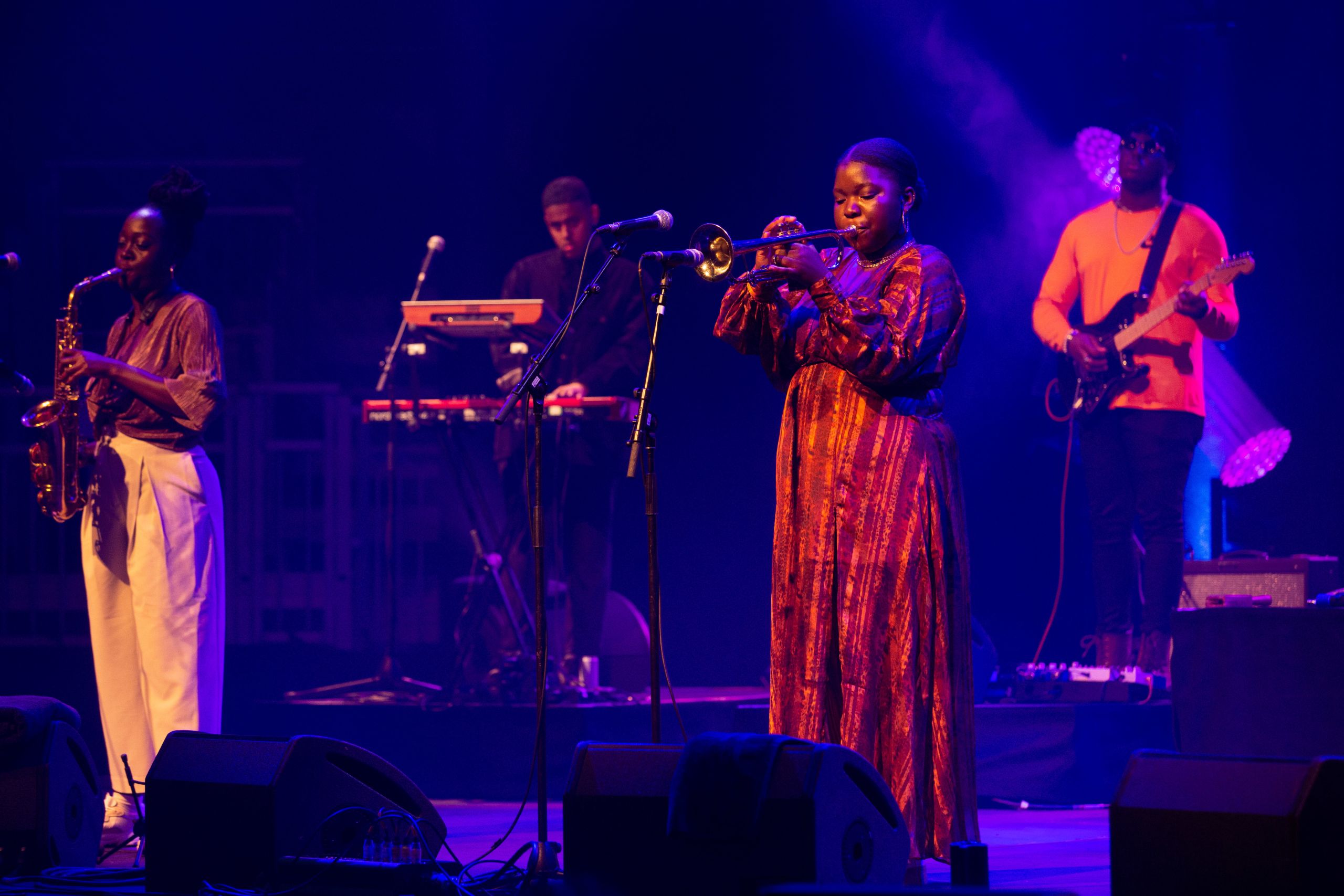
Saxophonist Cassie Kinoshi (far left) and trumpeter Sheila Maurice-Grey (second right) leading from the front at a recent KOKOROKO performance at the Roundhouse, London
Saxophonist Cassie Kinoshi (far left) and trumpeter Sheila Maurice-Grey (second right) leading from the front at a recent KOKOROKO performance at the Roundhouse, London
This music is shaped by myriad influences. The band’s first few years were spent playing covers to study West African sounds – seeking tutelage from the likes of Dele Sosimi and Afla Sackey, two of the great custodians of West African music in the UK. They learnt the structures of Fela Kuti’s songs, Ebo Taylor’s approach to his horn sections and the foregrounding of rhythm before all else. The band continues these global–local currents in its own compositions, drawing from the distinct West African approaches to jazz and improvisation, as well as Gospel, Grime, Hip Hop, sound-system culture and more. KOKOROKO’s music is laced with the grit of the capital – a sound built in dialogue with dancing crowds and with huge speakers in mind.
Storytellers and Myth-busters
The band’s breakout hit was ‘Abusey Junction’, the closing track on the 2018 London jazz compilation album We Out Here. To date the track, with its sweet Palm Wine guitar licks, soaring horns and ethereal vocals, has been streamed online nearly 40 million times. Written by the band's former guitarist Oscar Jerome, it captures the sonic atmosphere of a Gambian neighbourhood at nightfall. Jerome, along with several other band members, had visited The Gambia in order to learn with a celebrated griot (or storyteller) family, and this song was a happy by-product of the trip.
“It wounded me to think that there are so many West Africans in London … and you go to a space to hear black music being played and there were none of us there.”
‘Ti-de’ is a soft lullaby in a similar vein, taking its cue from a medley of old West African folk melodies. With soothing guitar riffs, gentle percussion and the now-signature tranquillising harmonies of Kinoshi, Seivwright and Maurice-Grey, the track is an invitation to remain present through changing times.
The upbeat atmosphere of ‘Uman’ arrives as an ode to black women. The song addresses the harmful myth of the ‘black superwoman’ – a trope that has roots in slavery. Maurice-Grey wrote the piece with her mother in mind. It builds on the themes she explores in her practice as a visual artist, which examine the misrepresentation of black women.
Although KOKOROKO’s music is for the most part instrumental, it’s intentional music – full of sentiment to convey the experiences of the band and, most importantly, their love for the music and desire to keep developing the sound for future generations. If you can connect with the warm, audacious strut of the horn section, languid vocal harmonies and lyrical guitar runs that dance over the steady, infectious bed of percussion and drums, then you can join the party.
Programme note © Teju Adeleye
Teju Adeleye is a writer and radio producer based in London. She is the host of ‘Floating Roofs’ on NTS Radio, a monthly show exploring contemporary jazz.
The KOKOROKO playlist
Get to know the KOKOROKO sound through some of their inspirations, mentors and collaborators:
Fela Kuti – Egbe Mi O One of the best-known tracks by the ‘Black President’ and Afrobeat pioneer, this track is Yoruba, meaning ‘Carry Me’
Dele Sosimi & Lokkhi Terra – Afro Sambroso A key mentor to the band, Sosimi is the architect of the annual Felabration celebration concerts. He played in Kuti’s band Egypt 80 and later worked with his son, Femi.
Pat Thomas & Kwashibu Area Band – Oye Asem Celebrated Ghanaian vocalist and songwriter Pat Thomas (known as the ‘Golden Voice of Africa’) has been serenading fans for over five decades.
Afla Sackey & Afrik Bawantu – Afro Bawantu Ghanaian-born master percussionist, vocalist, composer and dancer Afla Sackey played a memorable show at London’s Church of Sound with KOKOROKO last year.
Ebo Taylor – Peace on Earth The iconic Ghanaian guitarist, composer, bandleader, producer and arranger Ebo Taylor is another big inspiration for KOKOROKO. His horn arrangements in particular have been a big influence.
Hugh Masekela & Tony Allen – We’ve Landed Fela Kuti said that without the late Tony Allen there would have been no Afrobeat. Here he is with another of the band’s inspirations, the late South African trumpeter, Hugh Masekela.
Ezra Collective featuring KOKOROKO – Shakara The Ezra Collective is another star band on the London jazz scene, drawing inspiration from West African music. This track brought the two acts together for an explosive collaboration.
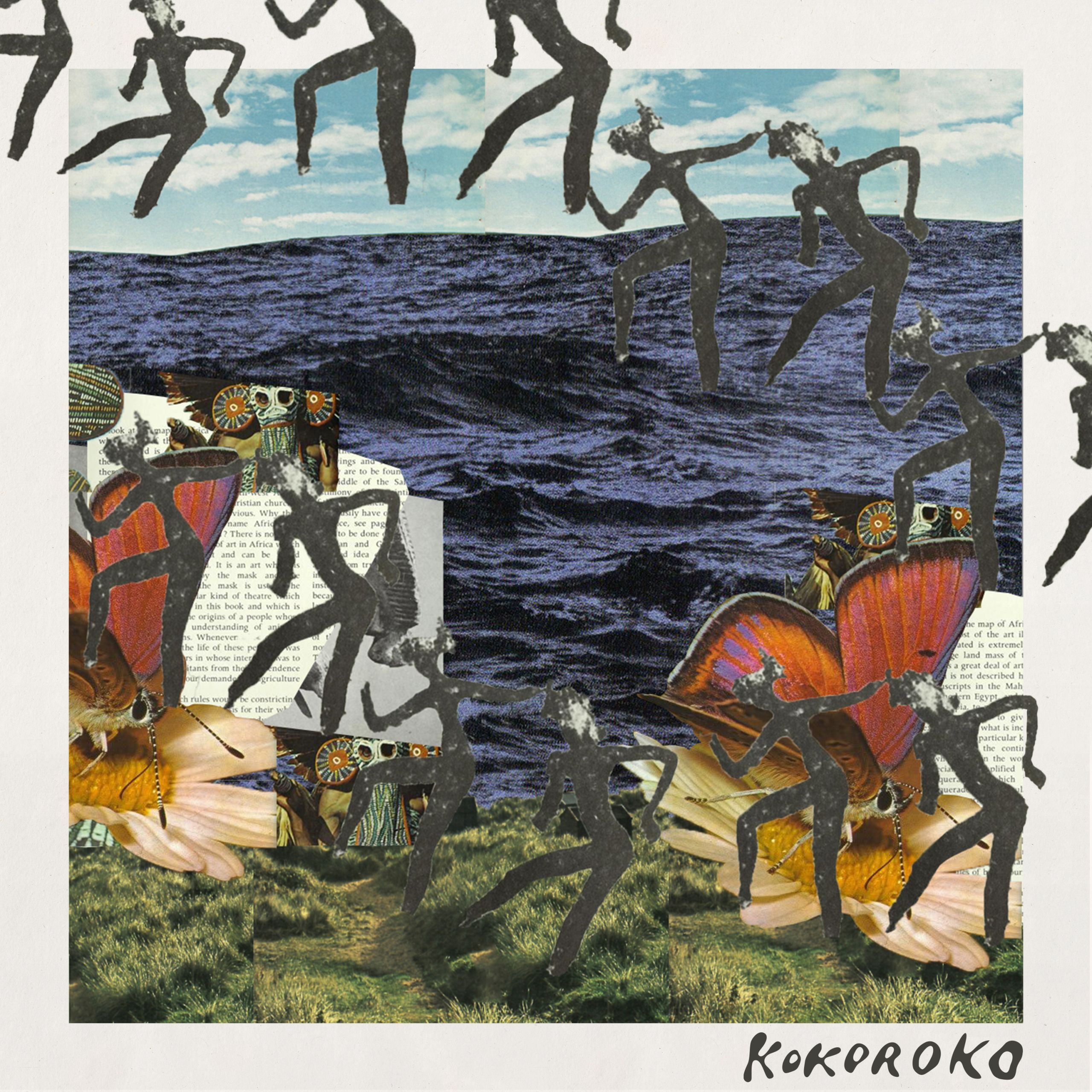
Biography
KOKOROKO
Sheila Maurice-Grey trumpet/bandleader
Cassie Kinoshi saxophone
Richie Seivwright trombone
Yohan Kebede keyboard
Ayo Salawu drums
Tobi Adenaike guitar
Duane Atherley bass
Onome Edgeworth percussion
KOKOROKO is a young, London-based Afrobeat eight-piece band led by trumpeter Sheila Maurice-Grey. Inspired by Fela Kuti, Ebo Taylor, Tony Allen and the great sounds coming out of West Africa, the band prides itself on putting on a performance to honour the masters that taught them.
Winners of ‘Best Group’ at the Urban Music Awards 2020, KOKOROKO specialises in a soul-shaking, horn-fuelled sound that combines West African roots with inner-London hues. Having played many UK and European festivals, including the Eden Festival, Elbjazz Festival, Glastonbury Festival, Jazz à la Villette, Jazz à Vienne, Meltdown Festival and We Out Here, KOKOROKO is looking forward to extending its reach further around the globe in 2020 and beyond.
We hope you enjoyed tonight’s performance
For full details of 主播大秀 Proms 2020 concerts and broadcasts, visit bbc.co.uk/proms
Online programme produced by 主播大秀 Proms Publications
